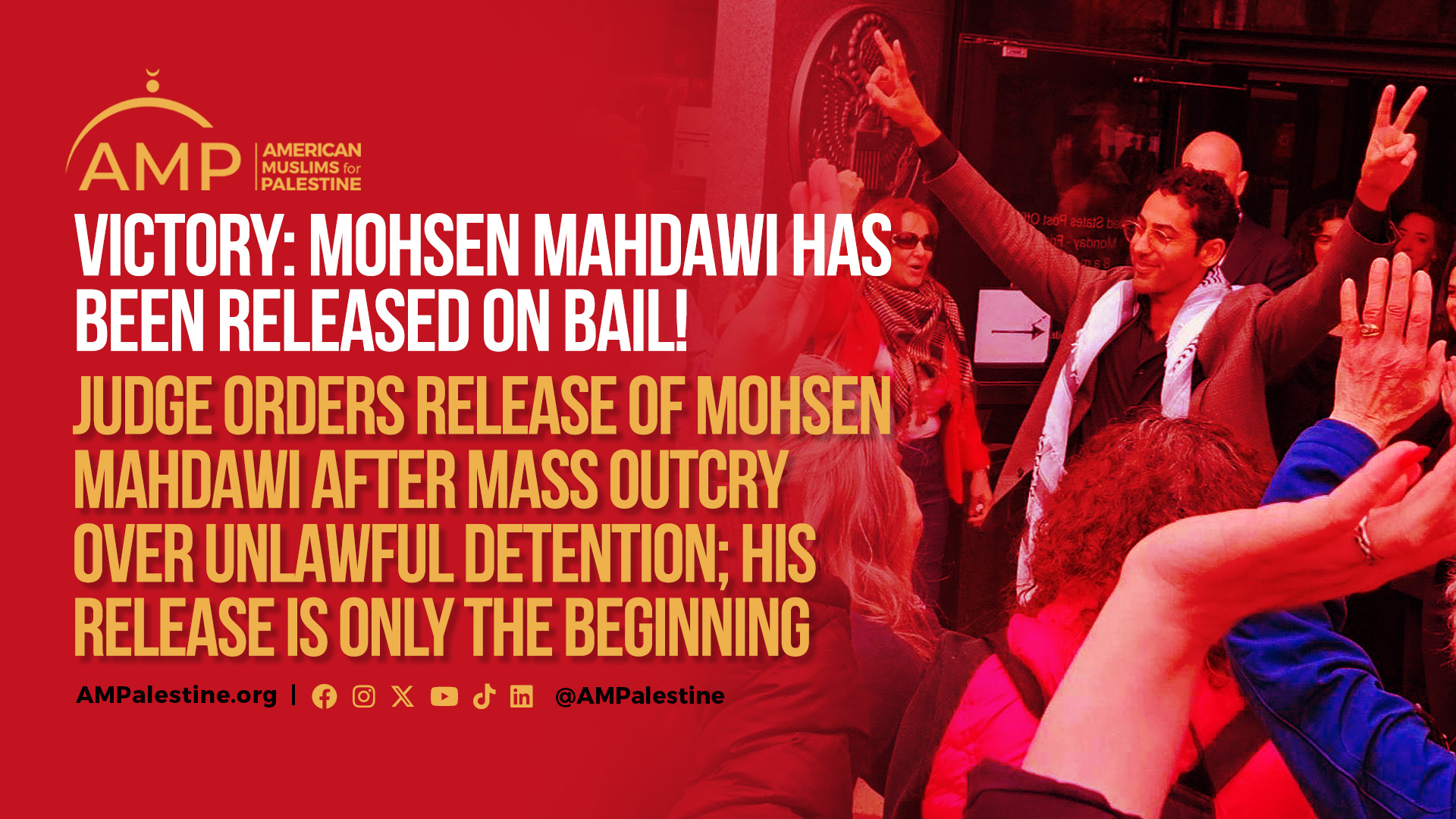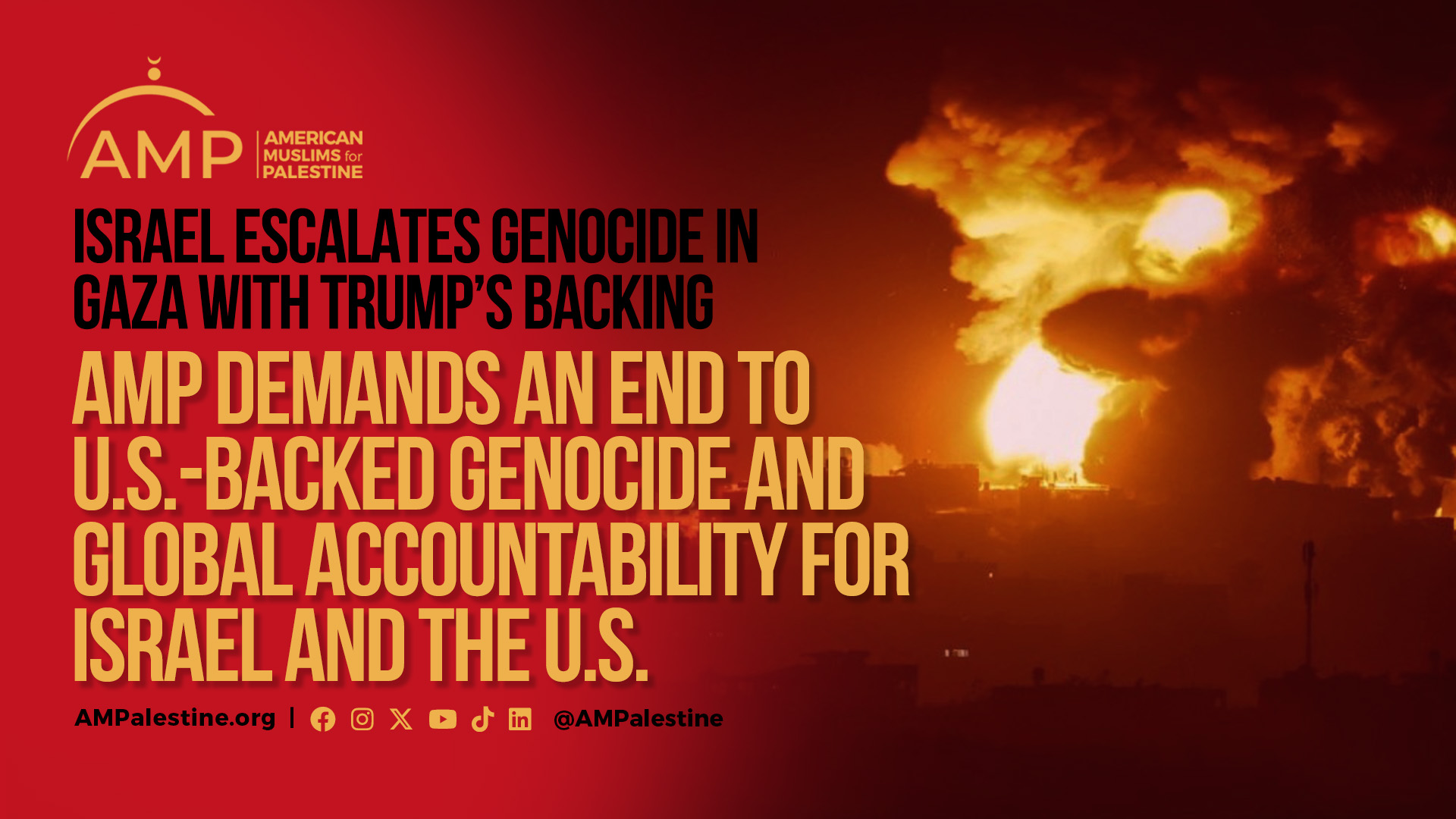AMP calls on Egypt to open Rafah border and cease construction on underground barrier
Press Conference
National Press Club
Washington D.C.
Jan. 19, 2009
AMP calls on Egypt to open Rafah border and cease construction on underground barrier
I am standing here before you today, one year after Israel launched its deadly attack against the Palestinians of Gaza, to talk not of the progress that’s been made in reconstruction and a return to normalcy since the war, but to discuss instead the ever worsening humanitarian crisis in Gaza caused by a nearly total blockade of its borders.
Israel’s siege on Gaza – now well into its third year – has crippled Gaza’s economy and plunged its people into abject poverty and deprivation. Statistical indicators leading up to Operation Cast Lead showed a population already struggling to survive. Even before the Israeli air force darkened the skies with 80 warplanes at 11:30 a.m., on Dec. 27, 2008, 79 percent of Gaza’s 1.5 million people were living in poverty. Unemployment stood at 49 percent and 76 percent relied upon the United Nations for food aid, according to data supplied by the United Nations and the Journal of Palestine Studies.
Today, one year after Operation Cast Lead killed 1,409 Palestinians – including 355 children - 90 percent of the Palestinians of Gaza rely upon the United Nations for food aid. The siege prohibits the export of Palestinian goods and severely limits the import of humanitarian supplies such as food, medicine and reconstruction materials. The United Nations reports that Israel allows into Gaza less than 25 percent of the goods it did before the siege began in June 2007.
The siege has only grown worse since the war. More than 25,000 people still remain homeless, scrabbling out an existence living in tents or worse – within caves they’ve carved out for themselves from the debris of bombed out and destroyed homes, hospitals, mosques, schools and municipal buildings. They have little or no fuel for cooking or heating since Israel closed the very important Nahal Oz crossing last fall. Nahal Oz was the sole oil and gas terminal serving Gaza. Now, less than 20 percent of what is needed is shipped through another crossing.
Health care is another casualty of the siege. Since Israel imposed the blockade in June 2007, more than 360 people have died because they had no access to medical care. As of June 2009, nearly 20 percent of essential drugs for things like kidney and heart disease were depleted, according to the Gaza Central Drug Store.
Fewer than 10 percent of Gaza’s wells are suitable for drinking because the siege has prevented the reconstruction and repair of damaged or destroyed wastewater treatment facilities. Tons of raw sewage are spewed into neighborhoods, agricultural fields and into the Mediterranean Sea every day. Gaza’s water is contaminated and there is no way to purify or treat it anymore.
Yet for as bleak as all this seems, it is about to get even worse. We at American Muslims for Palestine are outraged to learn the Egyptian government at the urging of the U.S. and Israeli governments is constructing an underground steel barrier 100 feet deep and six miles long in an effort to stop an underground network of tunnels.
“The tunnel economy,” as Andrew Whitely of the United Nations Relief and Works Agency called it in a recent panel discussion at Brookings Institute on Jan. 15, has come about as a natural consequence of the devastating siege. Consider how dire the circumstances are: Gaza’s industrial workforce has dwindled to 1,900 people from 35,000 in 2005, Whitley said. In 2005, Gaza had 3,900 factories. Today, there are fewer than 70. The war and siege have nearly wiped out the agricultural sector and the fishing industry, day laborers no longer can leave Gaza to get to work and the entrepreneurial sector of subcontractors also is gone. The result of the complete collapse of Gaza’s economy has been the creation and burgeoning of an underground tunnel economy, Whitley said. The Palestinians of Gaza rely upon these tunnels, through which food, water, medicines and other items of vital importance are brought for their very survival.
AMP is extremely concerned about this underground wall. Shutting down the tunnels while the siege continues will have catastrophic consequences for the struggling residents there and for the United State’s standing in the Arab and Muslim world.
The siege is in direct contravention to the Universal Declaration of Human Rights and the Fourth Geneva Convention. As an occupied people, Palestinians are protected; support and help are supposed to be rendered them. They are not supposed to be collectively punished. The fact Israel and now Egypt have to build these walls indicates a major failure of policy, and Palestinians are being punished for that failure.
Media reports have indicated the U.S. Army Corps of Engineers is helping Egypt with this barrier. Egypt and Israel are the two largest recipients of U.S. foreign aid. The United States is viewed by most in the Arab and Muslim world as being responsible for the siege - and now the wall- because of its support of Israel. AMP believes that U.S. support of Israel and Egypt in these matters hurts our national security interests and weakens our stance as a partner to peace negotiations in the Middle East.
AMP calls upon the international community to pressure Israel to lift the siege on Gaza.
AMP calls upon the Egyptian government to return to its hirostircal position of supporting the human rights and self-determinations of the Palestinians, which was supported by successive Egyptian governments. We call for Egypt to cease construction on the wall and to build bridges of peace and love with its neighbor instead. We call upon Egypt to open its border at Rafah. We ask for the free flow of goods with normal, procedural supervision as exists on any border between two territories.
AMP calls upon the American government to hold Israel accountable for its illegal actions by tying aid to progress in the area of human rights. We make aid to other countries contingent upon human rights policies and must do so in the case of Israel as well.
Finally, we believe lifting the siege on Gaza is vital for the Palestinians of Gaza. We call upon the American people to partner with AMP and through increasing education and awareness on this issue to urge their elected officials to uphold American values of justice and fairness and to hold Israel accountable and to demand Israel lifts the siege on Gaza.
Many comprehensive studies and reports have been released in the past several months. They’ve looked at and analyzed the impact of the siege coupled with the devastation wrought by Operation Cast Lead. AMP’s latest publication “Rising From the Ashes: Gaza’s Indestructible Spirit,” is a compilation of the data and findings of these reports, which came from groups such as the National Lawyers Guild, Al Mezan Center for Human Rights, Defence for Children International, the International Committee of the Red Cross, the United Nations Economic and Social Council and, of course, the Goldstone Report. These books are available to you on the registration table.
Finally, I would like to give you a concrete example of why we chose the title we did: “Gaza’s Indestructible Spirit.” Just yesterday, on the Website Islam Online, there was an article about an effort underway in Gaza to collect money for the victims of the earthquake in Haiti. And if it is possible and they are allowed to leave, a team of Palestinian doctors and engineers is being formed to go to Haiti to help in recovery efforts.
The Palestinians of Gaza may be besieged. They may still be reeling from the horror of the deadly attacks of Operation Cast Lead, but they are still standing tall. The Palestinians of Gaza are standing ready to help others though their own need is so great.



